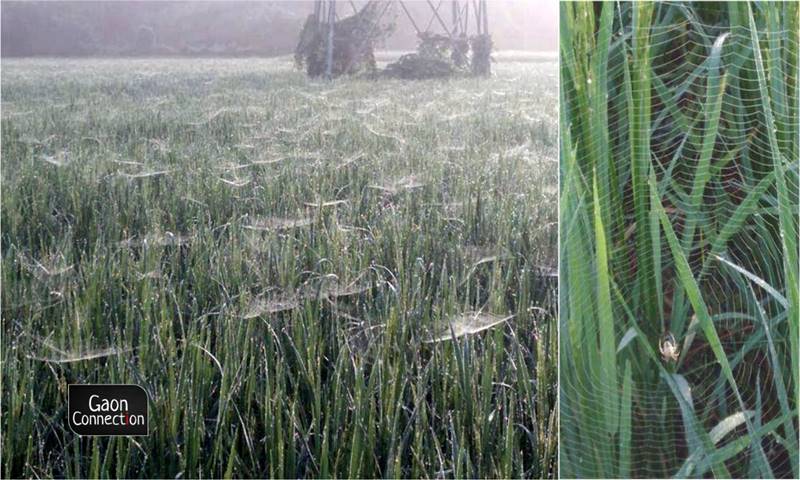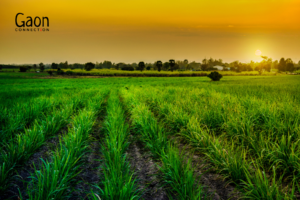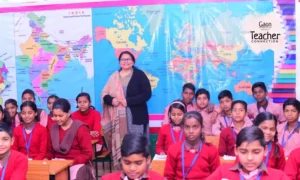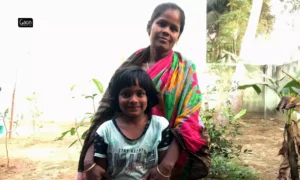Panna, Madhya Pradesh
On September 22 last month, Padma Shri farmer-poet Babulal Dahiya noticed green and long-snouted insects in his paddy field in Pithorabad village of Madhya Pradesh. Villagers, who passed through his fields, warned him about the possible pest attack and reminded him to spray pesticides.
However, the farmer and poet, who was conferred with the Padma Shri in 2019, left for Bhopal the following day. When he returned after a couple of days, he found spider webs everywhere on his field and baby spiders. “The baby spiders were making a meal of the insects that were trapped in the webs,” Padma Shri Babulal Dahiya narrated to Gaon Connection.
Explaining the phenomenon, Dahiya said that spiders spinning webs inside homes and out on the fields was an indication of the end of the monsoon season. It was also because this was the time the spiders laid their eggs.
Also Read: The fragile butterfly is as important as the mighty tiger
“In each web it spins, the spider lays hundreds of eggs. But these spiders do not damage crops. Spiders do not eat vegetation,” the farmer-poet explained. “They eat insects such as the one in my field, and keep the mosquito and fly population in control,” he added.
The spiders help maintain the balance of nature by getting rid of pests, and at the same time hundreds of baby spiders get their nourishment by eating these pests. “Sadly, most of us do not understand the way Nature’s food chain works,” Dahiya regretted.
Dahiya has done extensive research and work in organic farming methods and the ways of means of keeping the biodiversity balanced and intact.
Also Read: Export boost in sight, basmati rice farmers being trained about judicious use of pesticides
While pesticides may get rid of harmful pests, they also exterminate creatures that are good for the soil and cultivation, he said.
Talking about Nature’s endless bounty, Dahiya lamented how instead of coexisting harmoniously with other birds, beasts and vegetation on the planet, humans have wreaked havoc.
“Selfish and self-serving human beings are deeply wounding the beautiful, green and throbbing-with-life planet, by heartlessly stripping earth of its greenery and upsetting Nature’s balance,” the Padma Shri said. “The result is so many creatures have been rendered homeless and many of them are on the verge of extinction. We are now facing the consequences of our thoughtless actions,” he pointed out.
“The uncontrolled and indiscriminate use of chemical pesticides are upsetting Nature’s food chain, and this in turn can harm mankind. If we did not meddle in Nature’s work, the balance would right itself, naturally,” said Dahiya.
Also Read: When did you last see a frog? The population of mosquito-eating frogs is on a fast decline
Dahiya, who lives in Pithorabad village bordering the adivasi-inhabited area of Kalda Pathar in Panna district, is also a champion and conserver of indigenous and coarse grains.
“Ignoring and replacing indigenous grains in our diet with processed food has led to lifestyle diseases such as diabetes and blood pressure,” he said. The farmer-poet is painstakingly trying to revive and conserve such indigenous grains. He cultivates little millet, kodo millet, jowar, maize, etc., on his farm and keeps traditional agricultural methods alive.
“With the green revolution, farmers switched over to modern ways of cultivation and shunned the time tested ones,” Dahiya said. Chemical fertilisers began to be used in large quantities along with chemical pesticides as a result of which even the creatures that were beneficial to growing crops disappeared. And, Nature’s food chain snapped, he said.
Also Read: Vocal For Local: An alliance with millets
“So, don’t get too alarmed by insects. They are nutrition for spiders that eat the smaller insects and keep the biodiversity balanced,” he explained to Gaon Connection.
“There was a time when our meals included at least ten to twelve kinds of grains. Now we consume just three or four varieties of them,” the Padma Shri concluded.
Read the story in Hindi



















